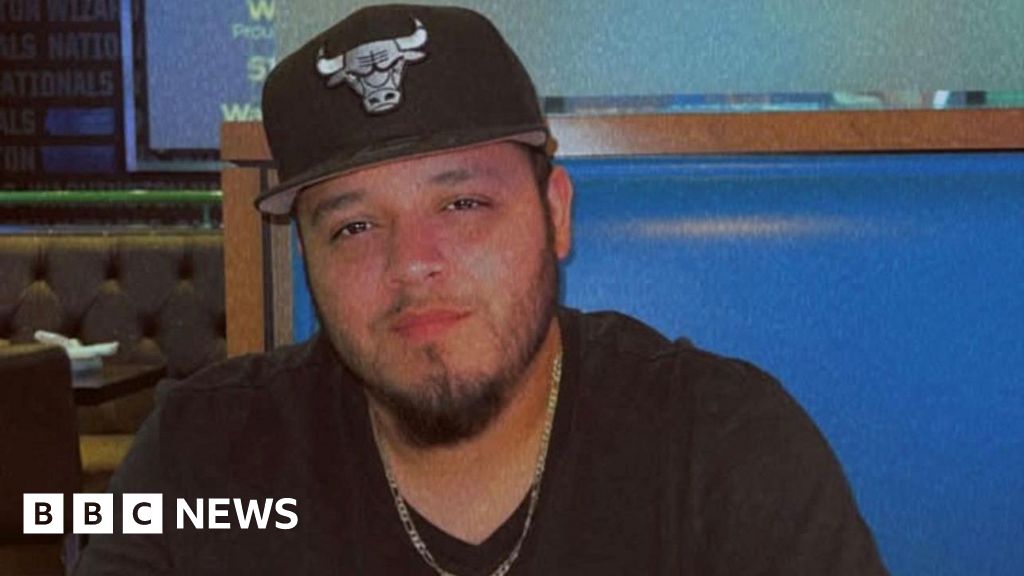The US Supreme Court has ordered the Trump administration to facilitate the return of a Maryland man, who was mistakenly deported to El Salvador’s notorious mega-jail.
The Trump administration had conceded that Kilmar Abrego Garcia was deported by accident, but appealed against a lower court’s order to return him to the US.
On Thursday, in a 9-0 ruling, the Supreme Court declined to block the lower court’s order.
The judge’s order “requires the Government to ‘facilitate’ Abrego Garcia’s release from custody in El Salvador and to ensure that his case is handled as it would have been had he not been improperly sent”, the justices ruled.
Mr Garcia, now 29, entered the US illegally as a teenager from El Salvador. In 2019 he was arrested with three other men in Maryland and detained by federal immigration authorities.
But an immigration judge granted him protection from deportation on the grounds that he might be at risk of persecution from local gangs in his home country.
He is being held at a maximum security prison in El Salvador known as the Terrorism Confinement Center (Cecot), along with hundreds of other men the US has deported over the last few months over allegations of criminal and gang activity.
His wife, Jennifer Vasquez Sura, is a US citizen and has called for his release. He was reportedly working as a sheet metal worker when he was detained on 12 March.
On 4 April, Judge Paula Xinis of the Maryland district court had ordered the Trump administration to “facilitate and effectuate” the return of Mr Garcia.
The government has said Mr Garcia was deported on 15 March due to an “administrative error”, although they also allege he is a member of the MS-13 gang, which his lawyer denies.
In its emergency appeal to America’s highest court, the Trump administration argued the Maryland judge lacked authority to issue the order and that US officials cannot compel El Salvador to return Mr Garcia.
US Solicitor General D John Sauer wrote in his emergency court filing: “The United States does not control the sovereign nation of El Salvador, nor can it compel El Salvador to follow a federal judge’s bidding.”
He added: “The Constitution charges the president, not federal district courts, with the conduct of foreign diplomacy and protecting the nation against foreign terrorists, including by effectuating their removal.”
On Monday, the Supreme Court put a temporary hold on the lower court’s order while they considered the matter.

Leave a Reply